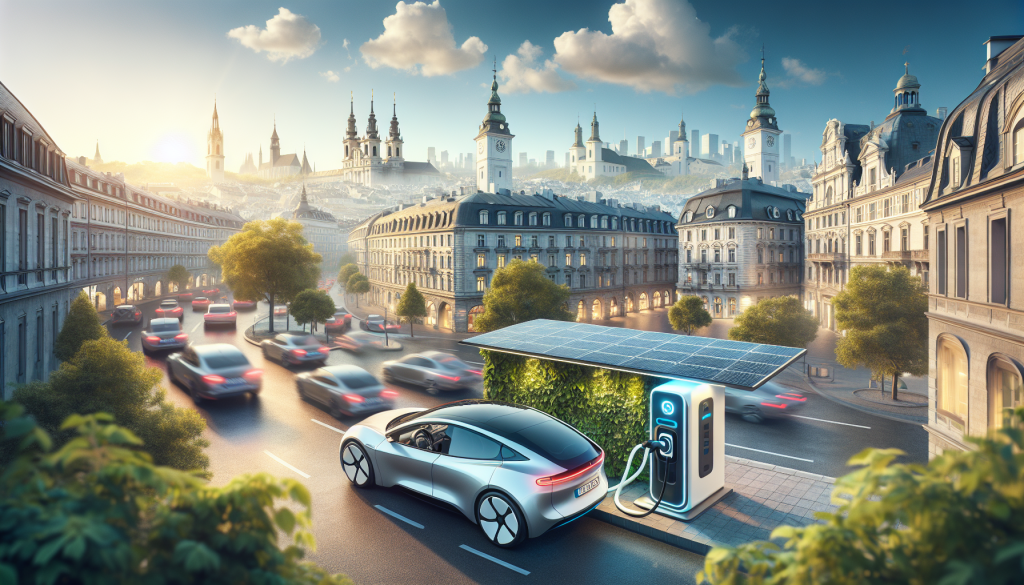
France is currently encouraging the European Union (EU) to provide more flexibility to carmakers regarding emissions standards. As climate change becomes a more pressing global concern, nations and industries are under heightened scrutiny to reduce their carbon footprints. However, balancing environmental goals with economic realities presents complex challenges, particularly for the automotive sector. This article will explore the reasons behind France’s push for emissions flexibility, the implications for carmakers, and the broader impacts on sustainability efforts within the EU.
France’s Proposal for Emissions Flexibility
The French government has advocated for a recalibration of the EU’s stringent emissions regulations, particularly targeting vehicle manufacturers. Currently, the EU is known for its rigorous emissions standards which aim to drastically reduce greenhouse gas emissions across member states by setting limits on the amount of carbon dioxide (CO2) cars can emit per kilometer. The necessity to meet these standards has been a driving force behind the development of electric vehicles (EVs) and other green technologies.
France argues that while these regulations are critical for environmental protection, they should be implemented in a manner that provides automakers with some flexibility. This flexibility could allow for a transition period in which manufacturers can adjust their production processes and technologies without severe penalties. By proposing an approach that balances stringent emissions targets with industry adaptability, France aims to bolster economic stability while still addressing the imperative of environmental sustainability.
The Push for Balanced Environmental and Economic Objectives
The automotive industry is a crucial component of the EU economy, directly employing millions of people and representing a substantial portion of the EU’s industrial production. Striking the right balance between economic health and environmental responsibilities is a challenging yet crucial task for policymakers.
France’s proposal can be seen as a request for a grace period to help carmakers transition seamlessly to greener technologies without disrupting their production or economic performance. This request highlights the tension between achieving environmental goals and protecting jobs within the industry. Delays or shortfalls in implementing new technologies could have significant repercussions for these workers and the economies they support.
Understanding the basics of the CO2 emissions debate involves knowing that carbon dioxide is a primary contributor to the greenhouse effect. This effect leads to global warming, a key driver of climate change. Technological advances in emissions reductions, like hybrid and electric vehicles, are crucial in mitigating these impacts (Wikipedia). In terms of measuring these emissions, the European Regulatory Testing Cycles provide standardized methods for evaluating how much CO2 different vehicle types emit, which in turn influences manufacturing practices and market offerings.
Scientific and Regulatory Background
The science behind vehicle emissions is rooted in the combustion process used by traditional internal combustion engines (ICEs). These engines burn fossil fuels, releasing energy. However, this process also releases several byproducts, including CO2, hydrocarbons, nitrogen oxides, and particulate matter—all of which contribute to pollution and climate change (ScienceDirect).
To combat these negative environmental impacts, regulators in the EU, following global scientific consensus, have imposed more stringent emissions standards. These standards are part of the wider European Green Deal, an ambitious action plan striving to make Europe the first climate-neutral continent by 2050 (European Commission). This plan targets a variety of sectors, with significant emphasis on transportation, which is responsible for about 25% of total greenhouse gas emissions in the EU.
The Shift to Electric and Hybrid Vehicles
In response to regulatory pressure, carmakers have shifted focus towards producing electric and hybrid vehicles, which are much cleaner alternatives to traditional cars. Electric vehicles (EVs) run entirely on electricity and emit no exhaust gases. Therefore, they stand as an attractive solution to reduce carbon emissions from transportation.
However, the shift to EVs is not without its challenges. Significant investments are required to develop electric technologies, build charging infrastructure, and ensure that the electricity used is generated from renewable sources. Hybrid vehicles, which combine conventional engines with electric power, serve as a transitional approach, offering some emissions reduction while maintaining the convenience of traditional cars.
Impact on Consumers and Market Dynamics
For consumers, the push towards electric and hybrid vehicles presents both opportunities and challenges. On the one hand, EVs offer cost savings over time due to reduced fuel and maintenance costs. On the other, the initial purchase price of these vehicles can be prohibitive for some buyers, even with government incentives (U.S. Department of Energy).
Market dynamics are also shifting. Automotive companies, faced with compliance pressures, are likely to increase their investments in EVs while phasing out some traditional models. This shift can also lead to increased competition in the EV market, potentially driving innovation and reducing prices for consumers.
Conclusion: A Balanced Path Forward
France’s call for emissions flexibility reflects the broader need for pragmatic solutions that address both environmental concerns and economic realities. As automakers navigate the path towards sustainable transportation, a balanced approach that includes regulatory cooperation, technological innovation, and consumer engagement will be essential.
The outcome of these deliberations will not only impact the EU but also set a precedent for global automotive and environmental policies. As the world continues to combat climate change, France’s proposal highlights the complexities and compromises required to achieve a sustainable future without sidelining economic growth. By ensuring that emissions regulations are both ambitious and adaptable, policymakers can support a transition that benefits the planet, the economy, and society as a whole.
The post France Advocates for EU Emissions Flexibility to Balance Sustainability and Economic Growth appeared first on Green.org.














